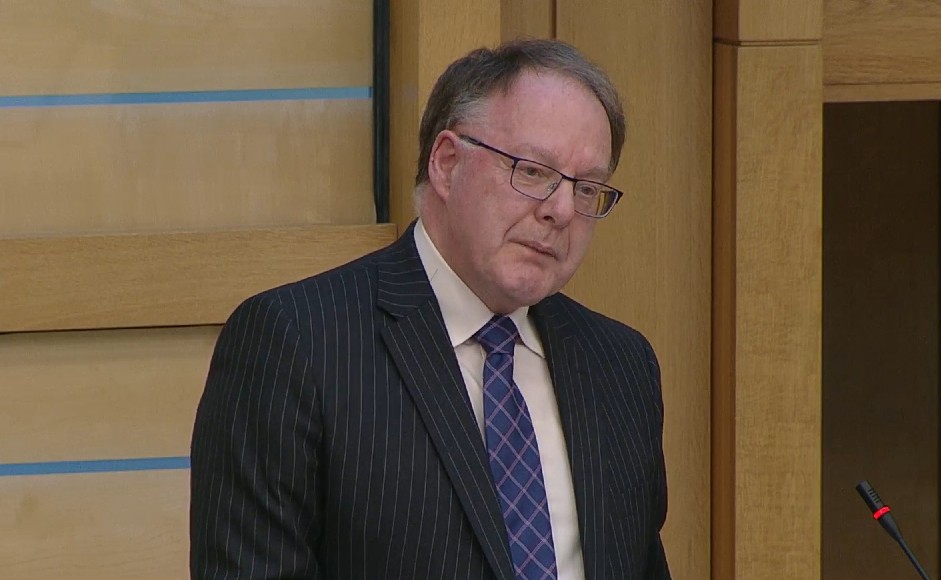Church elder who translated the Bible into Doric addresses Scottish Parliament
A Church of Scotland elder who spent 17 years translating the Bible into Doric has addressed the Scottish Parliament.
Mr Gordon M Hay, who is also a member of Longside Parish Church and an organist, spoke during Tuesday's Time For Reflection, a weekly session which takes place whilst parliament is sitting, becoming the first to do so in Doric.

The Bible translation is the first time the entire text has ever been published in Scots or any of its dialects, and was recognised with a motion laid down by Jackie Dunbar MSP in June of 2023 which praised Mr Hay's "impressive dedication required to achieve this scholarly achievement" and "his contribution to promoting the Doric language and making religion more accessible".
Reflecting on the opportunity to speak in front of MSPs, Mr Hay said he was "honoured", particularly as his invitation from Ms Dunbar included a request that he read from the translation.
A Church of Scotland member since childhood, last year he was awarded a long service award marking 30 years as an elder.
Mr Hay's address in full:
Presiding Officer, members of the Scottish Parliament, thank you for the invitation to share in today's Time for Reflection.
This comes from my having produced the first translation of the Bible in any variant of Scots, 640 years after the first English translation.
Let me share a couple of excerpts.
Firstly, why do we speak different languages? Genesis explains:
Noo, at ae time e hale warl aa spak e same tongue an e same wirds. 2 As fowk wannert aboot i the east, they cam on a bit o flat grun aboot Shinar an sattlt there. 3 They said tae een anither, "Come on, an mak a puckle bricks an fire them hard." Sae they hid bricks for biggin wi, an dubs tae haud them egither. 4 Syne they said, "Fat sorra idder, we'll bigg wirsels a gran toon wi a muckle tooer wi e tap o't raxin up tae hivven, an we'll mak a name for wirsels for fear we be scattert ower aa e warl." 5 Syne e Lord cam doon tae see e toon an e tooer att they fowkies hid biggit. 6 An he said, "Here they are, ae fowk wi ae tongue an iss is jist e start o't, seen they'll be able tae dee onythin they wint. 7 Come on, we'll gyang doon an mak a mixter-maxter o their wirds an they winna ken fit een anither's sayin." 8 Sae e Lord scattert them awa fae there ower e hale warl an they stoppit biggin e toon. 9 Att's e wye it's caaed Babel cause e Lord made a babble o the spik o aa e warl;
and from Ecclesiastes:
Aathin his it's sizzon, an for ilka thing ye dee aneth e hivvens there's a time:
A time tae be born, an a time tae dee; a time tae shaav, an a time tae hairst; 3 a time tae dee awa wi, an a time tae mak aa better; a time tae pu doon, an a time tae bigg up; 4 a time tae greet, an a time tae lauch; a time tae moorn an a time tae dance; 5 a time tae scatter steens, an a time tae gaither them up; a time tae gie a bosie, an a time tae haud back fae gien a bosie; 6 a time tae sikk, an a time tae tine; a time tae haud on tae things, an a time tae fling awa; 7 a time tae rive, an a time tae sort; a time tae be quait, an a time tae spik oot; 8 a time tae loo, an a time tae hate; a time for waar, an a time for peace.
Words written some 2500 years ago but still very pertinent today.
Presiding Officer, thank you for allowing me to share this with you.